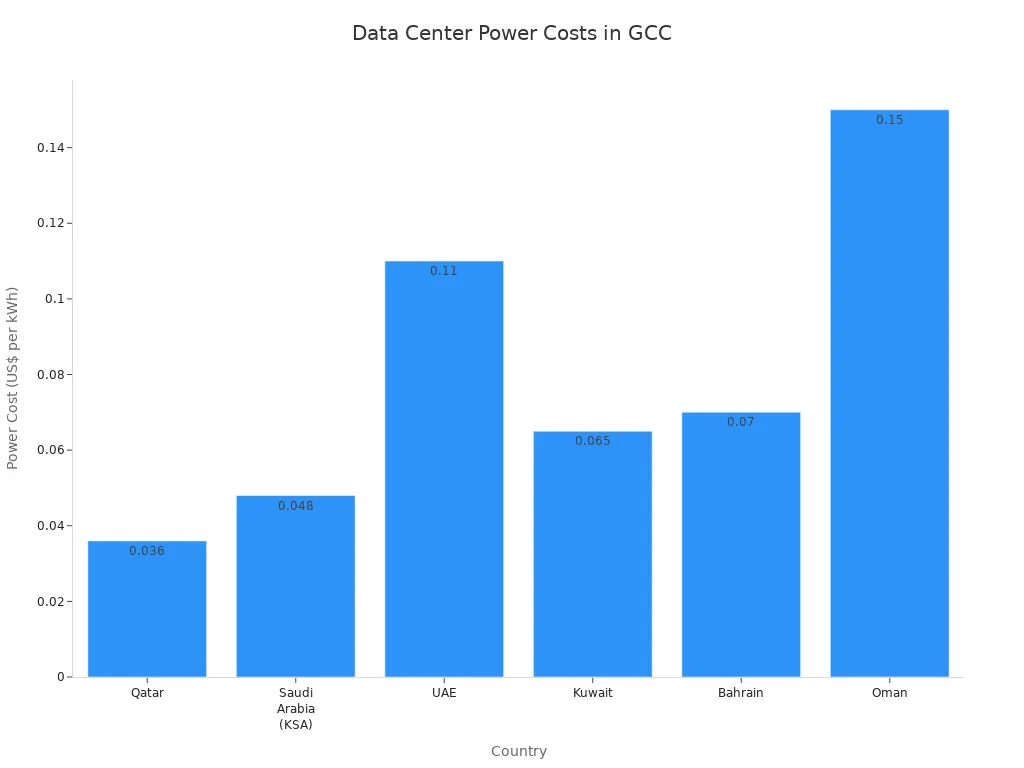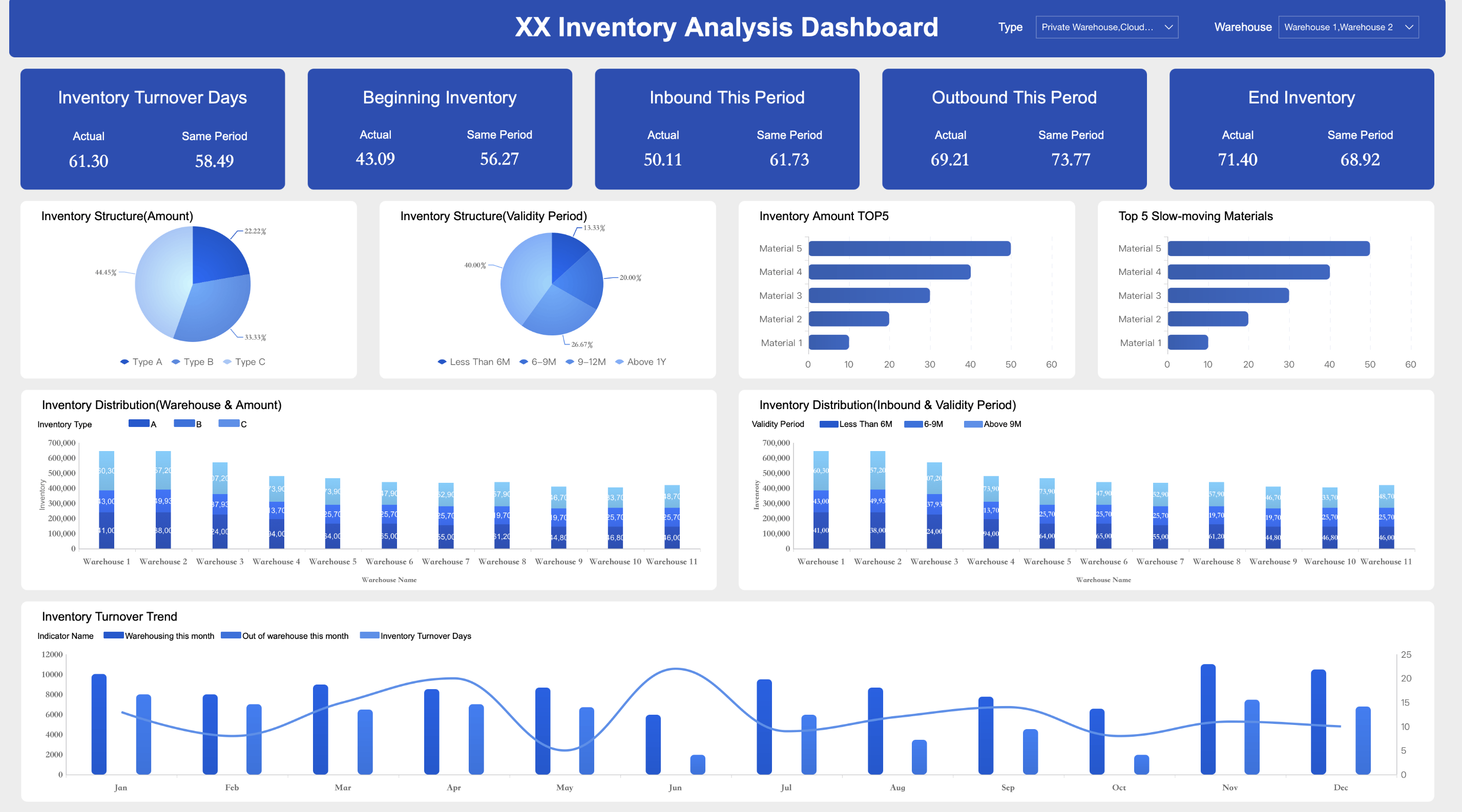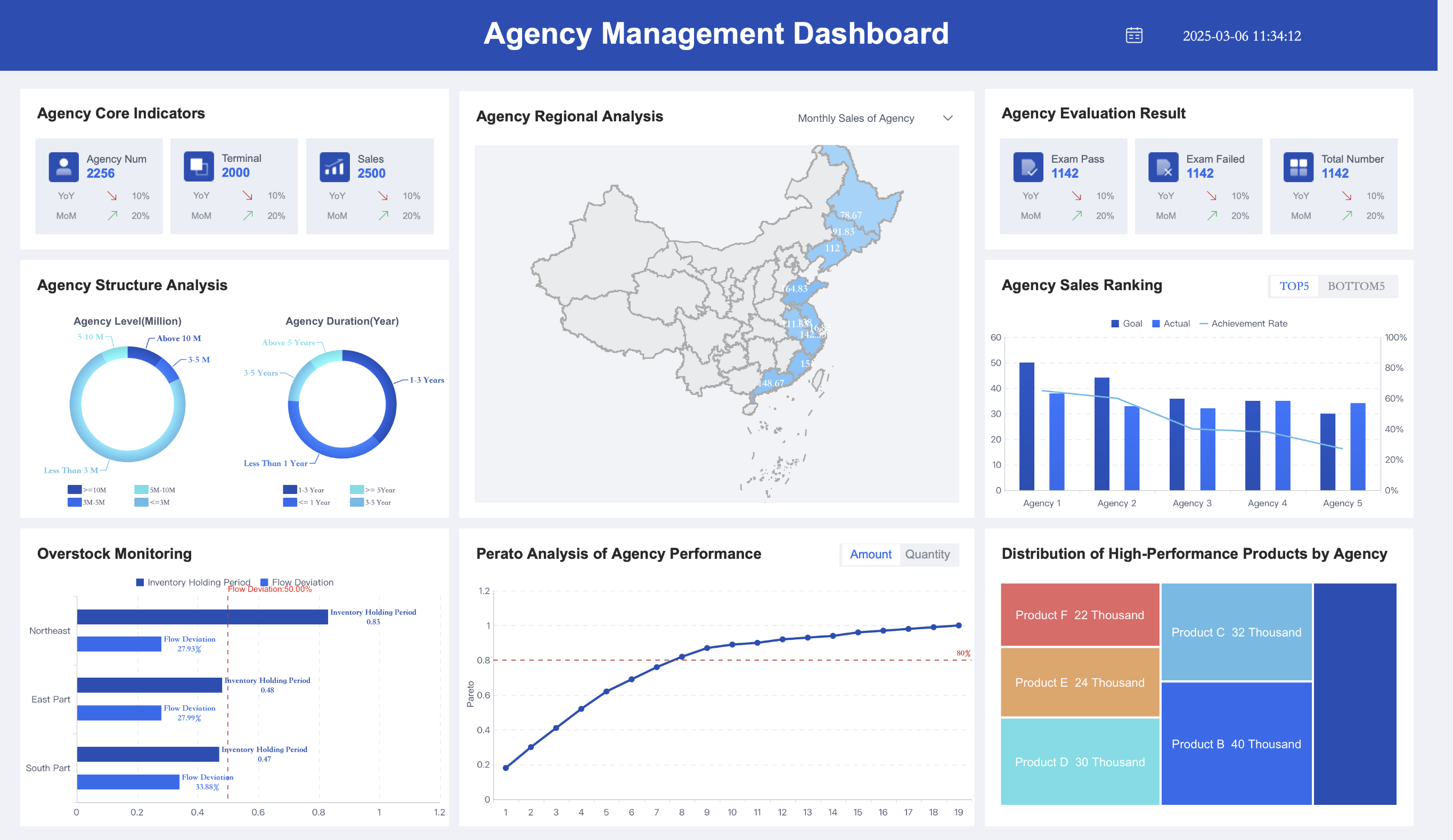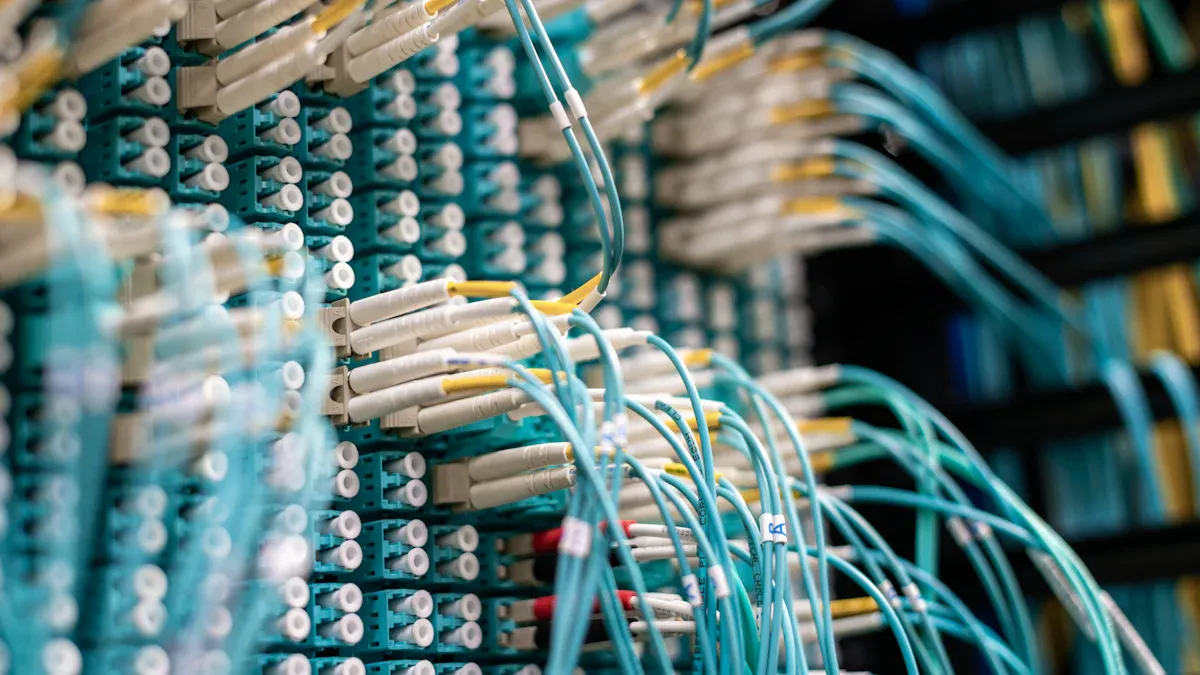Choosing the right data center in Saudi Arabia requires a clear focus on understanding your business needs, security, and compliance. As the Saudi data center market grows rapidly—reaching USD 3.9 billion by 2030 with a 19.6% CAGR (see table below)—you must select data center solutions in Saudi Arabia that align with your needs for scalability and integration. Modern BI tools like FineReport help you maximize the value of your chosen solution. A structured approach ensures you meet your needs with confidence.
| Attribute | Value |
|---|---|
| Market Size (2024) | USD 1.33 Billion |
| Market Size (2030) | USD 3.9 Billion |
| CAGR (2024-2030) | 19.6% |
You must start by understanding your organization’s unique needs before selecting any data center. In Saudi Arabia, several business drivers shape the demand for advanced data center solutions.
You will find that these needs impact sectors such as IT, telecom, banking, government, retail, and healthcare. Government incentives, such as 100% foreign ownership and tax breaks, further motivate you to invest in local data center services.
Below is the application in the medical industry.
You must address compliance and security as top priorities when evaluating data center solutions in saudi arabia. Saudi regulations require you to comply with the Personal Data Protection Law (PDPL) and register with the Communications, Space, and Technology Commission under the Data Centers Services Regulations.
Sector-specific requirements also apply. For example, financial services must use advanced threat detection and third-party risk management. Healthcare providers must protect patient data and secure telemedicine platforms. You must also ensure that incident reporting follows strict timelines and that communication is available in both Arabic and English. Environmental, social, and governance (ESG) requirements encourage you to adopt energy-efficient technologies and transparent reporting.
Your business needs will evolve as you grow. Scalability ensures that your chosen data center can handle increased workloads and new services. In Saudi Arabia, the rapid expansion of cloud computing, 5G, and digital economy initiatives means you need flexible data center solutions.
Scalability supports your long-term growth and helps you stay competitive in the dynamic Saudi market.
When you choose the right data center in Saudi Arabia, location and accessibility play a critical role. Riyadh, Jeddah, and NEOM stand out as strategic locations. Riyadh hosts about 60% of the data center footprint, driven by government investment and digital transformation. Jeddah offers strong connectivity due to its coastal position, while NEOM is emerging as a hub for innovation and renewable energy. These locations support low latency, high availability, and direct access to advanced infrastructure. Local data centers in these cities align with Vision 2030 and provide reliable data center services for your business.
| Location | Strategic Importance | Influencing Factors |
|---|---|---|
| Riyadh | Digital transformation hub | Government investment, high internet penetration, global cloud providers |
| Jeddah | Major hyperscale data centers | Strategic coastal location, connectivity, Vision 2030 support |
| NEOM | Innovation-driven ecosystem | Renewable energy, geographic position, smart city projects |
Strong network connectivity ensures your data center delivers high performance and reliability. Saudi Arabia invests heavily in ICT infrastructure, especially in Riyadh, to support digital transformation and smart city projects. Advanced 5G and fiber optic networks provide rapid deployment and real-time access to applications. Enhanced connectivity reduces latency and improves accessibility, which is vital for industries like smart manufacturing and autonomous transportation. When you choose the right data center, prioritize robust connectivity to guarantee seamless services and client satisfaction.
Below is a production command center dashboard.
Efficient power and cooling systems are essential for data center reliability and sustainability in Saudi Arabia’s harsh climate. Cooling accounts for nearly 40% of energy use, so many centers adopt liquid cooling and hybrid systems. The Saudi Energy Efficiency Center targets a 30% reduction in energy use by 2030. Green data centers use renewable energy and advanced cooling to lower costs and environmental impact. Reliable infrastructure ensures disaster recovery and continuous services, even during extreme weather.
Security remains a top priority for any data center. Leading facilities in Saudi Arabia hold certifications like CISSP, CEH, and CompTIA Security+. Local regulations require Cybersecurity Compliance Certificates for vendors and critical infrastructure. These standards protect your data, ensure availability, and support disaster recovery. When you choose the right data center, verify that it meets both global and Saudi-specific security requirements.
Cost considerations influence your decision when selecting a data center. Saudi Arabia offers competitive electricity tariffs and low land costs compared to other GCC countries. Government support and investments make infrastructure development more affordable. This chart shows how Saudi Arabia compares to its neighbors:

You gain more value by leveraging integrated BI and reporting tools like FineReport. These solutions maximize your data center’s infrastructure, enabling real-time analytics, seamless data integration, and improved decision-making. Reliable services, strong disaster recovery, and cost efficiency make Saudi Arabia an ideal location for your data center needs.
Selecting the right partner is a critical step in your data center journey. You need a provider who aligns with your business goals, regulatory requirements, and growth plans. Follow these steps to ensure you make a confident and informed decision.
Start by clearly identifying your organization’s requirements. This step sets the foundation for a successful data center partnership. Consider the following:
Tip: Use a structured checklist to document your needs. This will help you compare providers later.

Once you define your needs, create a shortlist of potential data center providers. Focus on those with a proven track record in Saudi Arabia. Evaluate their experience, certifications, and ability to deliver reliable services. Consider providers who offer advanced integration with business intelligence tools like FineReport. These platforms help you maximize your data center investment by enabling seamless data integration and real-time analytics.
Request detailed proposals from your shortlisted providers. Review each proposal for alignment with your business objectives and technical requirements. Saudi Arabia’s digital infrastructure is expanding rapidly, with projects like NEOM and DataVolt leading the way in sustainability and advanced technology. Make sure your provider’s proposal reflects these trends and supports your digital transformation goals.
Use the table below to guide your evaluation:
| Key Factor | Explanation |
|---|---|
| Security of tenure for land | Confirm ownership or long leasehold to avoid risks from lease termination or disputes. |
| Material customer contracts | Assess contract duration, customer concentration, and termination rights for revenue stability. |
| Availability of connectivity | Review contracts with carriers and ISPs to ensure continuous connectivity for critical services. |
| Physical and electronic security | Evaluate security systems and past breaches to protect your reputation and business value. |
| Access to power | Examine power supply contracts and backup systems to reduce risks from outages and financial liabilities. |
Note: Sustainability and cutting-edge technology integration are now essential. Look for providers who invest in green energy and AI-driven operations.
Schedule site visits to the data center facilities. Seeing the infrastructure firsthand gives you confidence in the provider’s capabilities. During your visit, assess the physical security, power and cooling systems, and network connectivity. Ask about disaster recovery plans and how the provider ensures continuous services during emergencies. Use your checklist to compare each site objectively.
Carefully review the Service Level Agreements (SLAs) offered by each provider. SLAs define the quality and reliability of the services you will receive. Focus on these elements:
Checklist for Assessment and Comparison:
- Strategic alignment with your business goals
- Regulatory compliance and data localization
- Technical infrastructure and scalability
- Security and disaster recovery capabilities
- Sustainability and energy efficiency
- Integration with BI and reporting tools (e.g., FanRuan, FineReport)
- Transparent SLAs and support services
FanRuan recommends a structured evaluation and implementation process. Begin with a thorough assessment of your data environment and business needs. Use a checklist to compare providers on key criteria. Leverage integration tools like FineReport to centralize data and streamline reporting. This approach ensures you choose your data center provider with confidence, maximize your investment, and achieve reliable, scalable services that support your growth.

You must prioritize data protection when operating in Saudi Arabia. Data centers here use advanced strategies to keep your information safe.
Physical security also matters. Perimeter security uses barriers and surveillance to stop intruders before they reach sensitive systems. Without this first line of defense, even the best internal controls would not protect your data.
You must follow strict regulatory standards in Saudi Arabia. The Personal Data Protection Law (PDPL) and Cross-Border Data Transfer Regulations limit how you move data outside the country. Transfers require explicit consent, risk assessments, and approved safeguards. If you break these rules, you could face large fines or even jail time.
| Regulatory Standard | Key Impact on Data Center Operations in Saudi Arabia |
|---|---|
| Data Center Services Regulations (CST) | Requires registration every 3 years, mandates physical security, enforces service quality, and demands accurate reporting. |
| Cloud Computing Regulatory Framework 2.0 | Sets security levels, requires business continuity, and applies sector-specific rules for hosting and cloud services. |
Recent updates require all cybersecurity roles to be filled by qualified Saudi nationals. Enhanced protections now include multi-factor authentication and stronger defenses against DDoS attacks.
Different industries in Saudi Arabia face unique security and compliance challenges.
Tip: Always keep your infrastructure updated with the latest patches and configurations. This helps you stay ahead of new threats and maintain compliance.
You need a unified approach to manage data from multiple sources in your data center. FanRuan and FineReport help you break down data silos by consolidating information into a single source of truth. This unified data management improves accuracy and operational efficiency. You can integrate data from databases, cloud platforms, and edge devices, ensuring that your infrastructure supports advanced analytics and machine learning. By following Saudi Arabia’s National Data Management Office standards, you maintain strong data governance, quality, and compliance. This approach covers the entire data lifecycle and supports seamless sharing and interoperability across your business and partners.

With FineReport, you gain the power of real-time reporting across your data center infrastructure. This capability allows you to monitor security events and operational metrics instantly. You can quickly identify and respond to incidents, reducing the risk of data breaches. Real-time analytics also support regulatory compliance and lower your security management costs. Here are some key benefits you experience:
You stay ahead of threats and make informed decisions faster.
FanRuan and FineReport transform your data center into a hub for business intelligence. You can analyze trends, optimize resource allocation, and tailor strategies to boost your return on investment. Unified data management enables you to leverage advanced analytics and machine learning, helping you spot market trends and adapt quickly. Industries such as manufacturing, finance, healthcare, and retail benefit from this approach. You gain operational agility and scalability, which are critical for success in Saudi Arabia’s fast-evolving market. Integration with cloud and edge computing ensures your infrastructure delivers timely insights and supports your digital transformation goals.
How to Secure Remote Data Analyst Jobs in 2025
Business Data Analyst vs Business Analyst Key Differences Explained

The Author
Lewis
Senior Data Analyst at FanRuan
Related Articles

What is a data management platform in 2025
A data management platform in 2025 centralizes, organizes, and activates business data, enabling smarter decisions and real-time insights across industries.
Howard
Dec 22, 2025

Top 10 Database Management Tools for 2025
See the top 10 database management tools for 2025, comparing features, security, and scalability to help you choose the right solution for your business.
Howard
Dec 17, 2025

Best Data Lake Vendors For Enterprise Needs
Compare top data lake vendors for enterprise needs. See which platforms offer the best scalability, integration, and security for your business.
Howard
Dec 07, 2025